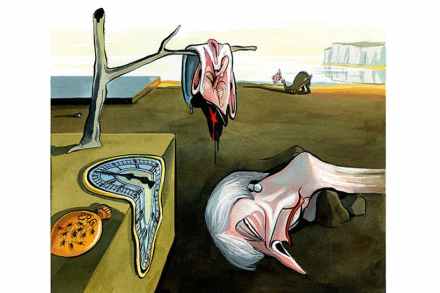The Spectator Podcast: the surrealism of Brexit, three years on
In Salvador Dalí’s Persistence of Memory, several clocks are melting away in a surreal desert scene where a distorted horse-like creature fades into the sand, below a ledge where a pocket watch crawls with ants. The bizarre painting is rather reminds one of the surrealism of the Brexit process, especially after this week. The government has gone into full meltdown mode – it lost yet again on May’s Brexit deal (though this time by a smaller margin, only by 149 MPs); ended up whipping against itself on a motion rejecting no deal, where 13 government ministers defied the whip; and just about wrested control of Brexit from the Commons on a



















